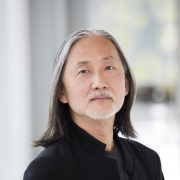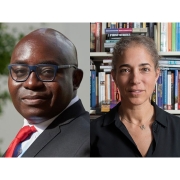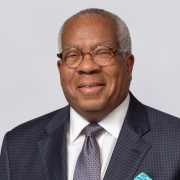Randall Collins, Renowned Sociologist, Honored With Symposium

Penn's Sociology Department recently hosted “Social Interaction and Theory: A Conference in Honor of Professor Randall Collins.” Collins, who is retiring, is the Dorothy Swaine Thomas Professor of Sociology and a renowned expert on the sociology of philosophies and intellectuals, social and political conflict, macro patterns of violence, and micro-sociology. He is author of numerous books, including Violence: A Micro-sociological Theory, Interaction Ritual Chains, Macro-History, and The Sociology of Philosophies, for which he received the American Sociological Association Scholarship Award. Collins served as the 102nd President the American Sociological Association (ASA) from 2010 to 2011.
The conference included a host of influential presenters from universities spanning the country. They spoke on topics including: “Police Violence and the Iconic Ghetto,” “Rituals of Empowerment in Criminal Justice,” and, “College Circuits: A Case of Situational Stratification?” Collins himself presented on “What Has Micro-Sociology Accomplished?” His talk touched on micro-sociology’s impact on understanding everything from violence to social media. In examining conflict, Collins noted the impersonal nature of modern policing and warfare.
“Shootings at a distance of less than two meters are extremely inaccurate. Seeing the other person’s face, and being seen by him or her, is what creates the most tensions,” says Collins. “Snipers with telescopic lenses can be extremely accurate even when they see the target’s face, but seeing their face isn’t the key thing. What they do not see is the target looking back. There is no mutual attention.”
On the topic of technology and social media, and what may be on the horizon concerning emotional interactions, Collins remarked, “It would be foolish to postulate that electronic or other media technologies will never be invented that mimic the key aspects of bodily interaction rituals. That is, some kind of device that can enhance mutual sensitive tension, or strength of shared emotion. But people who become electronic junkies will be dominated by people who use a wide spectrum of successful interactions … people who meet bodily.”
Collins also touched upon leadership techniques when it comes to conflict. He cited Steve Jobs, the late CEO of Apple Inc. as a good example of a leader who used conflict as a leadership tool. “This interactional style was to evoke extreme emotions, especially very negative ones,” says Collins. “But unlike authoritarian leaders who bark out critiques and orders and then slam the door behind them, Jobs stayed to argue at great length … until the group emotion was transformed into a shared trajectory.”
Over 175 people—including some from Europe—registered for the conference, which was supported by the Office of the Provost, the School of Arts and Sciences, the Department of Criminology, and the Department of Sociology. Over 100 people wrote tributes to him in an album.
The conference was co-organized by Annette Lareau, Stanley I. Sheerr Term Professor in the Social Sciences and Professor and Department Chair of Sociology Emilio A. Parrado.
“Randall Collins is one of the leading sociologists of his generation. Since his work is so influential, virtually everyone in the discipline knows who he is,” says Lareau. “He loves ideas, and he reads more than anyone I know. Thus, he can easily hop from a conversation about Napoleon, and how little he slept as he was leading armies, to interactional patterns in street gangs. His most recent work on violence—and how incompetent many violent acts are—has helped to change how people in the field think about violence. His students praise him for being a generous, kind, and inspiring teacher. He is also a wonderful colleague. He will be sorely missed.”





